MAKING CONNECTIONS
Stories of students connecting with Deep-C science and scientists
An important outcome of the 2010 Deepwater Horizon oil spill has been its value as a teachable event. It has given rise to new and expanded research into the impacts of oil, dispersed oil, and dispersant on the ecosystems of the Gulf of Mexico. It has also focused attention on the importance and relevance of science, technology, engineering and math (STEM). Students interested in STEM have had the chance to investigate topics that intrigue them – through science projects, volunteer work, and internships. Those students who have reached out to Deep-C scientists have tapped a valuable resource. From answering questions by phone or email, to sometimes even agreeing to host a student in their research environment, many Deep-C scientists devote time to work with middle and high school students – providing them insight into the scientific process and enabling them to develop technical and analytical skills. We look forward to featuring these student/scientist relationships in the coming months in an online series, MAKING CONNECTIONS. The inaugural profile features Elizabeth Smithwick, a high school sophomore whose interest in hydrocarbon degrading bacteria led her to contact Dr. Joel Kostka at the Georgia Institute of Technology.
Self-motivation and perseverance make the most of mentorship
|
|
– Posted April 30, 2013 –
When Elizabeth Smithwick, a sophomore at Episcopal High School in Jacksonville, Florida contacted Dr. Joel Kostka, she was hoping to talk to him as someone who had worked with hydrocarbon degrading bacteria. Elizabeth had an idea for a science project, but realized that she needed guidance and maybe even access to a research lab if she was going to do something really extraordinary.
“I had been working for awhile in a hospital microbiology lab,” Elizabeth explains. “But I wanted to investigate how bacteria degradeor remove oil naturally from the environment. And since the hospital dealt with clinical bacteria, they suggested I discuss my project with someone who specialized in environmental microbiology.”
An Internet search led to her contact Kostka, whose lab at the Georgia Institute of Technology (GaTech) combines cutting edge microbiology and molecular biology with biogeochemistry. Kostka’s work on the role of microbes in helping to clean up oil spills made the mentorship a perfect fit since Elizabeth’s interest was in examining microbes in the St. Johns River that degrade oil.
“Elizabeth had read my paper on hydrocarbon-degrading bacteria in beach sands contaminated with oil from the Deepwater Horizon discharge,” explains Kostka. “So her project was certainly in line with the work we are doing.”
“I was most interested in learning how scientists isolate and identify the bacteria, “Elizabeth said. “I already knew they would use some kind of selective agar, but they showed me how to make it. Also, I was very interested in identifying the bacteria genetically, and was wondering how I could accomplish that.”
|
|
Her initial email to Kostka led to ongoing collaboration and in October 2012, Elizabeth accepted an invitation to visit the Kostka Lab at Georgia Tech. She spent time learning about oil spills and how microbes help to degrade oil in the oceans. She also spent time with Will Overholt and Kala Marks, a Ph.D. student and undergraduate student (respectively) in Kostka’s lab. Students at Georgia Tech are studying how a succession of microbial populations, each adapted to different types of hydrocarbon compounds, are involved in the natural cleanup of oil on Gulf coast beaches. Both Overholt and Marks noted that during her visit, Elizabeth listened very carefully to what they had to teach her.
|
|
Kostka was impresssed by how self-motivated and highly independent Elizabeth is. For example, she insisted on isolating her own microbes that degrade oil, rather than working with bacterial strains that had already been isolated.
“She really persevered!” Kostka recalls. “She asked a lot of questions and kept coming back to us to learn more. Elizabeth demonstrated that self-motivation and commitment are as important to the research process as brute knowledge.”
Working with the St. Johns River Keeper, she collected samples from oil-contaminated sediments of the St. Johns River. Elizabeth then isolated oil-degrading bacteria from the contaminated sediments and sent the Kostka Lab the isolates so they could help her to identify the bacteria.
Her hard work paid off when Elizabeth won first place at the regional science fair, which earned her a place at the state competition, where she placed third. She also placed third in Environmental Sciences at the Science and Engineering Fair of Florida, was awarded a four-year $54,000 scholarship at Florida Institute of Technology, and won the regional U.S. Stockholm Water prize, a contest exclusively for water related projects.
Based on her experience, Elizabeth has some advice for other high school students in her position: “I would tell them, if they see an article that appears interesting to them, try to contact the author. The worst they could do is say 'no' and often times they are very willing to help.”
Elizabeth says she is grateful for her contact at GaTech with Kostka and his team. “I have always been interested in becoming a researcher, and my visit to the Kostka Lab only reinforced that. Everyone was very knowledgeable and willing to work with me. If I do become a researcher, I hope that I can help students pursue research like they helped me,” promises Elizabeth.
|
|
Dr. Joel Kostka is a professor of microbial ecology at the Georgia Institute of Technology in Atlanta, GA. His research addresses the role of microbes in how ecosystems function, especially in the areas of water quality and nutrient cycling. Kostka’s involvement in the Deep-C Consortium includes investigating how quickly the Deepwater Horizon oil carried into Gulf of Mexico beach sands is being degraded by the sands' natural microbial communities, and whether native oil-eating bacteria that wash ashore with the crude are helping or hindering that process.
Read more: Science Fair Winners Announced and Episcopal Students Win at Science and Engineering Fair of Florida
The Deep-C consortium is a long-term, interdisciplinary study investigating the environmental consequences of petroleum hydrocarbon release in the deep Gulf of Mexico on living marine resources and ecosystem health. The consortium focuses on the geomorphologic, hydrologic, and biogeochemical settings that influence the distribution and fate of the oil and dispersants released during the Deepwater Horizon accident, and is using the resulting data for model studies that support improved responses to possible future incidents.
Deep-C was a four-year, interdisciplinary study of deep sea to coast connectivity in the northeastern Gulf of Mexico.Deep-C is no longer an active research project. The information on this website is for historical reference purposes only.
Home | About Us | Research Areas | Data Center | News & Multimedia | Education & Outreach
© Deep-C Consortium. All Rights Reserved.
This research was made possible by a grant fromThe Gulf of Mexico Research Initiative (GoMRI).
Copyright | Disclaimer | Privacy Policy
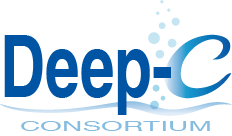
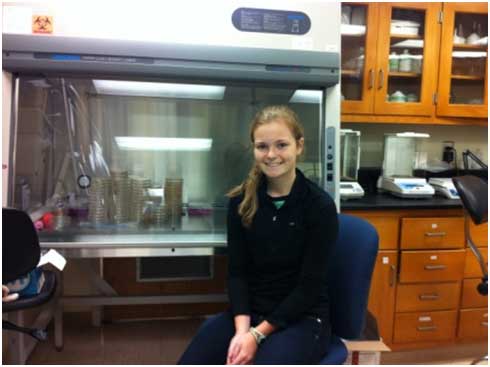
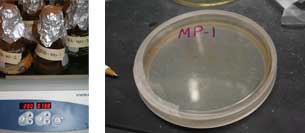
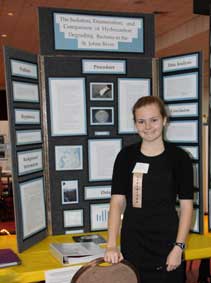
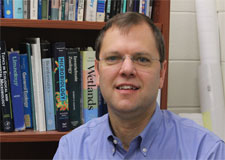 Deep-C researcher Dr. Joel Kostka, Georgia Institute of Technology
Deep-C researcher Dr. Joel Kostka, Georgia Institute of Technology